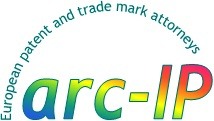Patents
Patents Overview
A patent is a legal title conferring the right to prevent unauthorised commercial use of the patented invention.
A patent can protect a technical innovation which is new and inventive; it is granted country by country and can generally last for up to 20 years. If you wish to seek patent rights, it is essential that any patent application is filed BEFORE you disclose the invention (other than disclosures recognised to be confidential).
A patent application is published 18 months after filing and is required to fully disclose the invention. Consequently, published patent applications, particularly those which have expired or been allowed to lapse, are a valuable source of technical information. Patents can also provide a useful indication of the technologies in which competitors are investing.
Various routes are available for seeking patent rights including national, European and International patent applications. Each route has its own advantages; we will advise you on the route which is best suited to your project.
R&D requires investments in time and money.
Patents help provide a financial return on this investment.
The financial return on your R&D investment may be provided by:
- a technological advantage with respect to your competitors
- increased market share and/or selling price of improved products
- increased margins due to reduced manufacturing costs.
If your competitors can simply copy your improvements, your competitive advantage is lost and your R&D investment is at least partially wasted. Protecting your inventions by filing patent applications thus protects your R&D investment.
Patents can also attract investors, be used to reassure financial backers and generate income through licensing.
Unfortunately, your competitors may also have patents!
Owning a patent does not automatically give you the right to commercialise your invention. You should also check, at the start of your projects, that you will not infringe previous patents.
Practical Advice
Include patent considerations at the early stages of each of your R&D projects:
- consider freedom of use and possible infringement of competitors patents from the start of your project,
- keep your project and your R&D work secret, at least until you have decided whether you want to file a patent application,
- use confidentiality agreements if you need to disclose information outside your company,
- think about the new elements that you have developed and what technical advantage these bring – these may be patentable.
Think about these issues at each stage of your R&D project, and particularly if there is a change in direction of the project.
One of ARC-IP’s skills is working with you to optimise the inclusion of IP issues in your R&D projects.
We can help integrate patent issues in your R&D projects and R&D strategy. We can work on individual projects or act across a number of projects with your R&D and commercial teams to provide patent coordination and advice corresponding to your business objectives.
Freedom to operate analysis: avoiding your competitors’ patents
Freedom to operate should be considered from the start of your R&D projects to:
- provide early warning of potentially relevant competitor patents,
- provide sufficient time, if necessary, to design around existing patents,
- provide technical information of potential interest,
- avoid unpleasant surprises at the end of the R&D project.
Freedom to operate should be considered at each stage of the project, in particular each time there is a change in direction of the project.
What can be patented? What should be patented?
In order to be patentable an invention must be “new” and “inventive”.
To satisfy the requirement for the invention to be new, make sure that you keep the invention secret until a patent application has been filed. Be particularly careful when giving information or samples to customers or suppliers or when publishing technical information. If it is essential to disclose information before a patent application is filed, make sure that you have a suitable confidentiality agreement in place and mark the information “CONFIDENTIAL”.
For the requirement to be “inventive” or “non-obvious”, focus on the technical advantages of your invention. Small technical advantages can be patented and can be commercially significant.
Step Improvements
New Technologies
“Core/Strategic Business”
“Non-core Business”
File patent applications if there is a clear business opportunity for you to exploit.
Patents which provide only narrow rights and are easy to design around, or for which it is difficult or impossible to detect infringement, are of little real commercial value.
Patent searching and patent watching
Patents provide a valuable source of technical and commercial information.
Patent searching can provide valuable information on a technology and generate ideas or solutions to problems you are trying to solve. Patents searching at the early stages of a R&D project can help identify the most promising direction for the project.
Patents can also provide valuable information on your competitors, particularly regarding the technologies and markets on which they are focussing their R&D efforts.
ARC-IP provides patents searches and patent watches focussed on your objectives.
In all cases, ARC-IP will provide clear reports with practical and understandable recommendations.
Patent searching is based on published patents and patent applications. As there is generally a 18 months delay between the first filing of a patent application and its publication, it is generally not possible to find details of patent applications filed in the 18 months period immediately preceding a search.
Links
European Patent Office (EPO) http://www.epo.org
World Intellectual Property Organization http://www.wipo.int
Belgian Intellectual Property Office https://economie.fgov.be
UK Intellectual Property Office http://www.ipo.gov.uk/
